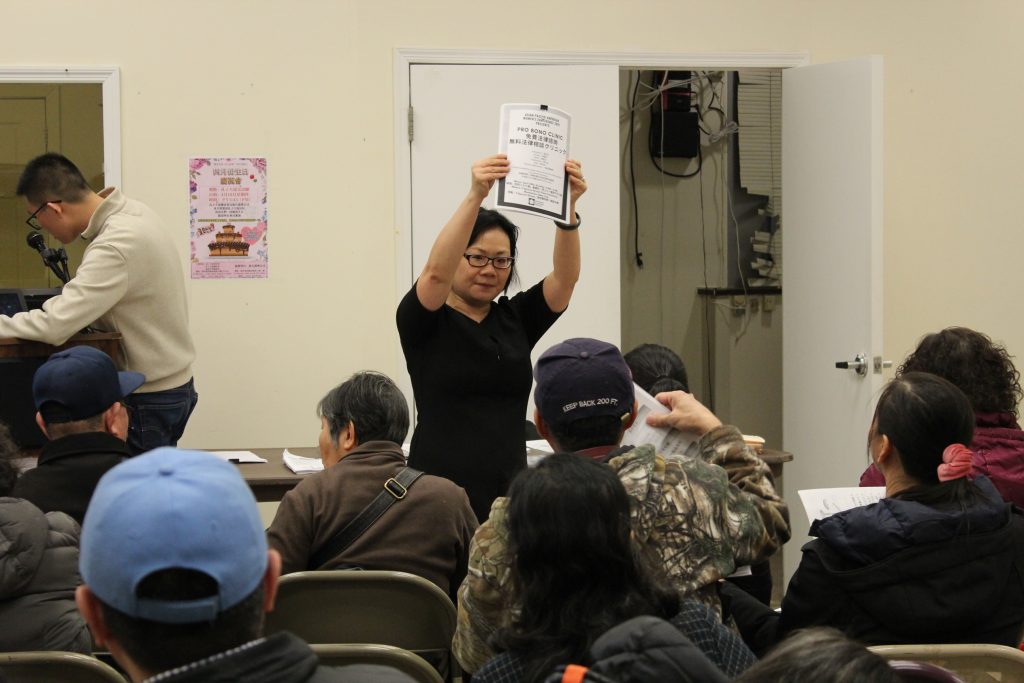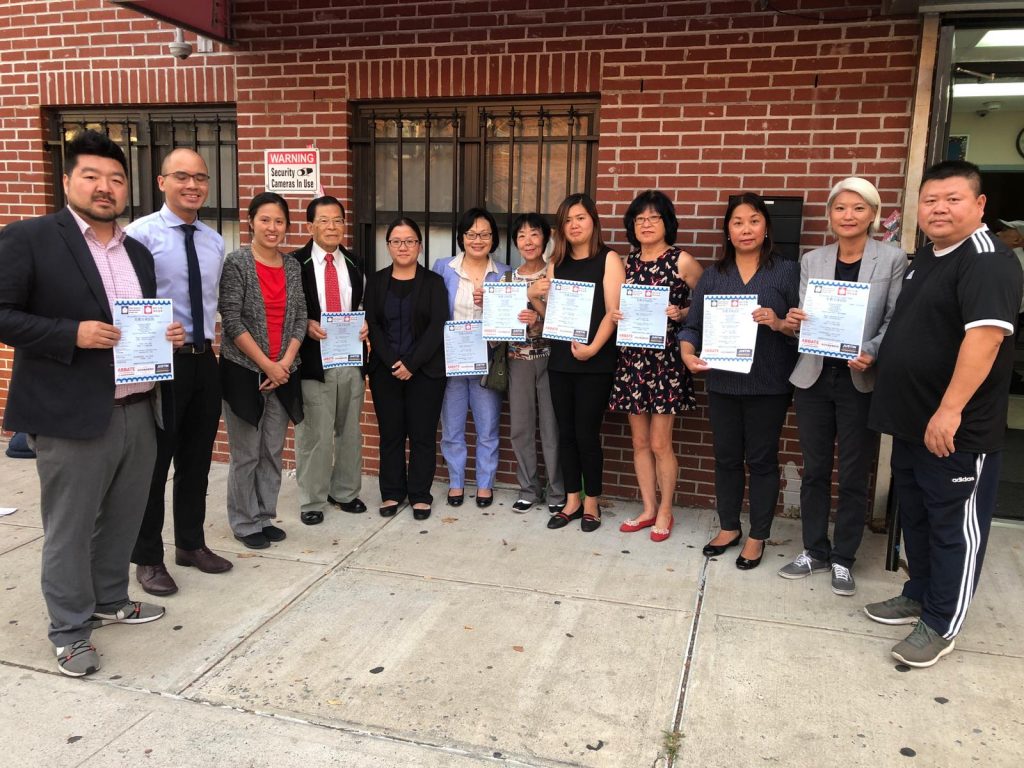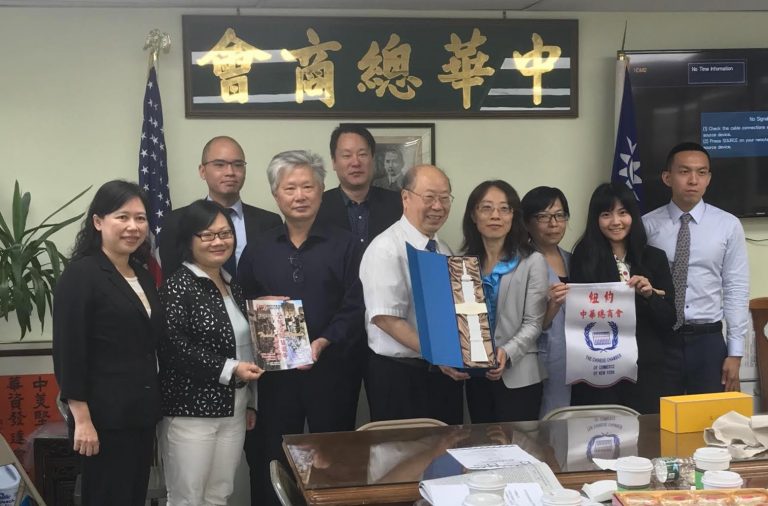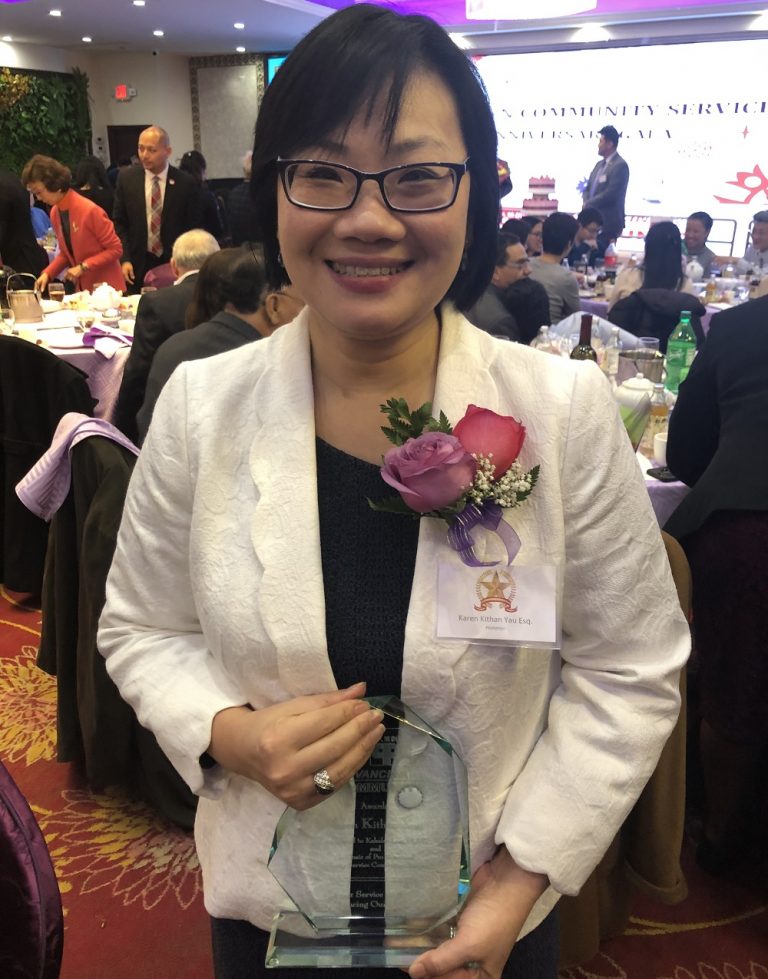
AABANY congratulates Muhammad Faridi, current AABANY member, President of the New York City Bar Association (NYCBA), and Partner at Patterson Belknap Webb & Tyler LLP, for receiving NAPABA’s 2024 Pro Bono Service Award. The award is well-deserved, recognizing Muhammad’s commitment to pro bono work within the legal profession as well as his dedication to the advancement and protection of civil rights. Though Muhammad had not originally expected to be able to accept the award in-person due to an ongoing jury trial, as luck would have it, his closing statements took place the day before the awards presentation. Thus, he was able to appear in-person at the 2024 NAPABA Convention in Seattle, Washington to be presented with the award during Saturday night’s Gala on November 9, even though right before he got the award, a video was played showing him apologizing for not being able to be there in person due to an ongoing trial. None of the honorees were permitted to speak after getting their awards, which made for a puzzling moment. Thanks to Muhammad for clearing up the confusion, and congratulations again!
When asked why pro bono work is so important to him, Muhammad emphasized that it allows him to support and uplift his community, saying: “It is becoming increasingly difficult in our country for people from my type of background to enter the profession. I think there are a lot of barriers … that have made it difficult for people from marginalized backgrounds to have the level of success that I have had. There are significant structural problems that exist in our system that prevents many people from realizing their potential … a lack of resources in our public schools … health related challenges in communities where marginalized people live … and more.” For Muhammad, pro bono service is a way to give back and show support to the people around him.
Raised by immigrant parents from Pakistan, from a young age Muhammad’s family played a deeply influential role on him. For one, they imparted upon him a deep appreciation and respect for the Islamic faith. He explained, “One thing that people don’t appreciate is the commonalities of the Islamic faith – decency, humanity, and justice. These are concepts that all of us share. In some ways, my faith is one way for me to try to live by those three principles. It’s my spiritual way of trying to embody and connect with them.” Muhammad remarked that he has tried to carry these ideals with him throughout his career and into all the work he does.
Muhammad’s family also instilled in him the ideal that “education is something that is transformational in nature.” Muhammad attended John Jay School of Criminal Justice, from which he graduated summa cum laude. He then attended CUNY School of Law, where, as a 1L, he served as a research assistant for the Death Penalty Committee of the NYCBA – an introduction to what would later become one of his core professional interests – and, as a 2L, he earned a diversity fellowship from the NYCBA’s Committee on Recruitment and Retention of Lawyers – which he continues to work on and improve to this day.
Following his graduation from law school, Muhammad clerked for the Honorable Jack B. Weinstein, a former judge in the Eastern District of New York, a position which he described as “probably the best legal job I have ever had in my career.” As a clerk, Muhammad had the opportunity to closely interact with Judge Weinstein, growing not just professionally, but also personally. He remarked, “The most profound way [Judge Weinstein] influenced me was to not be deterred by the notion that it is too difficult or impossible to effectuate meaningful change. He encountered so many barriers as a judge. The rules appeared very rigid [but] he was able to navigate through those rules in a very careful way to make sure that he was always able to dispense his notion of justice. That was illuminating.” Muhammad further reflected that Judge Weinstein was always accessible and “fun to be around,” saying that he has tried to emulate these qualities in his own career.
After his clerkship, Muhammad began working for Patterson Belknap Webb & Tyler LLP in its litigation department, where he is now a partner. Over the course of his career, he has represented clients as both plaintiffs and defendants in a variety of industries, including financial services, pharmaceuticals, software, and manufacturing. Some of his most recent trial successes include securing a directed verdict on a statute-of-limitations defense, securing a $2 billion jury verdict, and securing a $1.84 billion settlement for his client midway through trial.
One of the most unique aspects of Muhammad’s career has been his ability to balance his professional work with his pro bono work. Ever since law school when he served as a research assistant for the NYCBA’s Death Penalty Committee, Muhammad has positioned himself as a strong opponent to the death penalty, representing a number of clients on death row. He recalled a particularly influential case he took on in 2016, in which his client had been on death row for eight years, saying: “We were dealing with some very challenging facts [but] were nevertheless seeking to spare that person’s life.” Though his client was ultimately executed after all the appeals processes had been exhausted, Muhammad reflected that he could “only hope that the attitude in our country changes to some degree.” Despite the heartbreaking nature of these cases, Muhammad has found immense meaning in them: “Many times you are dealing with people of the saddest backgrounds ever. These are some of the most marginalized people ever. These death penalty cases are in some ways an opportunity to give back to the community. It’s an uphill battle.”
Beyond death penalty cases, Muhammad has involved himself in a variety of other pro bono work. In 2016, for example, he worked on Trump v. Hawaii, representing a union of federal asylum and refugee officers challenging government restrictions on the rights of refugees. He explained, “We had harkened back to some of the problematic episodes in our history …. In that case, we tried to restore the longstanding tradition of America providing a safe haven to those who are being persecuted.” He successfully challenged the laws and barriers preventing these persecuted individuals from realizing the American dream, describing it as a “fascinating case and one of the defining moments of my career.”
Perhaps Muhammad’s most significant endeavor thus far is serving as President of the New York City Bar Association. Having worked with the organization throughout his entire career in various leadership capacities, including as Chair of the Capital Punishment Committee, Chair of the Executive Committee, and Vice President, his election to the presidency seemed only natural. When asked how he plans to shape the organization’s path forward, he responded, “Our number one goal is to prepare for the future. Our profession is going through a fundamental change. Young lawyers are beginning to question the value proposition of many longstanding institutions. The questions that are being asked are profound and need to be asked, like what is the value of the bar association? Is this the most effective way for lawyers to network? The younger lawyers are questioning and exposing these inefficiencies. Thus, my number one priority is to make the newer generation of lawyers understand the importance of bar associations.” Indeed, Muhammad’s vision reflects a clear commitment to supporting the new generation of lawyers and to ensuring that bar associations evolve to meet the needs of the rapidly-changing legal profession.
Outside of the legal world, Muhammad has impacted the larger New York City community as an independent civil representative to the NYPD’s Handschu Committee, an organization that oversees compliance with the Handschu Guidelines, which regulate the NYPD’s policies and practices regarding investigations of political activity. As Muhammad described, the Committee ensures that “while law enforcement is able to fulfill its very important duty, the rights of New Yorkers are not violated in the process.” With his background of representing people from the Muslim community, and as a human rights advocate, Muhammad has found the Committee’s work to be important and rewarding, stating that the current law enforcement process “exists in a very thoughtful process and strikes the right balance” in part due to Handschu.
Furthermore, Muhammad has committed to strengthening and supporting the Asian American community in New York. He has attended various events as an active AABANY member for many years, and also served on the Board of Directors of the Muslim Bar Association of New York from 2009 to 2010.
Please join AABANY in congratulating Muhammad on receiving the NAPABA Pro Bono Service Award. To learn more about the award, please click here.





